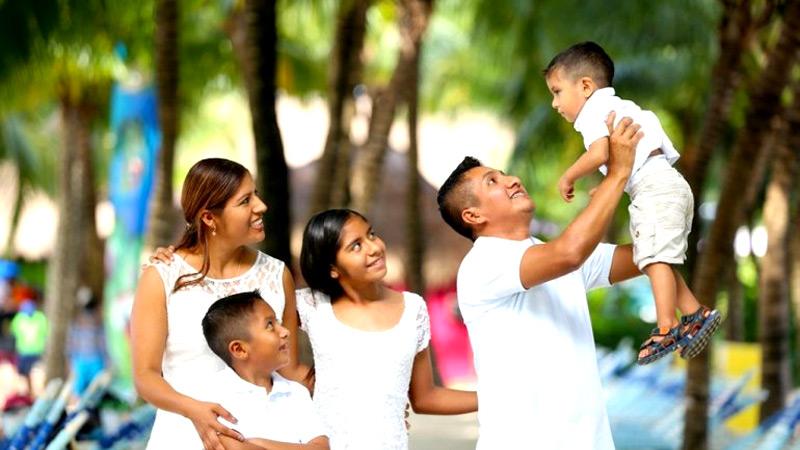
Bringing up a child is a wholesome and fulfilling experience for parents. From the day the child is conceived till the time he or she steps in to adulthood, parents hold many responsibilities to bring their child up to be a respectable human being. However, most parents or couples expecting to bring up a child are not aware of the best practices of parenting.
 Positive parenting, or best practices in parenting involve the mother and the father contributing in moulding their child to be a successful adult. Positive parenting should start from the child’s birth.
Positive parenting, or best practices in parenting involve the mother and the father contributing in moulding their child to be a successful adult. Positive parenting should start from the child’s birth.
According to Carol Gooneratne, Psychologist and Vice President of the Sri Lanka National Association of Counsellors, a child’s psychological development is at maximum potential during the ages of 0 – 6 of his or her life.
“The early stages of a child are where we identify his mind as being in a “sponge” state where he absorbs all sensory information he is exposed to: sound, touch, visuals, tastes and smells,” Gooneratne said. She said the child forms concepts from the information he receives via his senses through his parents, the early caregivers.
Parents need to take extra care in what their children are exposed to during these ages.
For example, if the child is exposed to a loving and caring relationship between the mother and the father, he or she learns the positive values of the affectionate relationship between parents.
In the long run, when the child reaches adulthood, he will be able to show love, compassion and empathy towards others and identify human emotions comprehensively.
This will benefit the child as an adult in intimate relationships, such as during his/her married life.
When the parents share a negative and emotionally unstable relationship, this in return can affect their child’s mentality as he or she will be exposed and conditioned to believe that relationships are conflictive and lack of value.
They will learn to model similar behaviour in relationships and become disconnected from the people around them in their adulthood.
The mother and the father play equal roles in positive parenting. The father’s emotional support is vital during the pregnancy, as the baby is physically and mentally connected to the mother in the womb where he can hear and feel the reinforcements the mother receives. The father holds a great responsibility in bringing his child up well from the time the baby is conceived.
Cultural differences
 There can be cultural differences in parenting, where parents and caregivers may adapt to different parenting roles, and may condition children to behave according to certain cultural norms.
There can be cultural differences in parenting, where parents and caregivers may adapt to different parenting roles, and may condition children to behave according to certain cultural norms.
For example, in some cultures, it is believed that the father is not an important figure in parenting, as the role of bringing the child up is expected to be taken up by only the mother.
In most instances, we see that children are stunted by their parents from vocalising their thoughts and opinions, restricting them from expressing themselves.
This leads to the child becoming emotionally dented. The development of the mind of a child does not differ from culture to culture, as development stages of children are universal. Therefore, adapting a uniform healthy parenting style across cultures is essential. This enables children to develop their authentic identity, instead of repressing their feelings. “Many parents that I have spoken to have adhered to the practice of forcing their children to behave in a certain manner which is considered as socially acceptable,” Gooneratne said.
She said children are vocal when it comes to their feelings, such as their likes and dislikes. For example, if a child refuses to speak to or kiss a certain family member or a friend, he or she will withdraw from the act. In such a situation, the parents should not force the child against his or her will as the child will lose sense of self and what is true to them and learn to be withdrawn. This creates a serious defect in the child’s personality as he grows old since it gives rise to a dissociated personality in the child as an adult. Giving space for authentic self growth is essential.
Parents must become role models for their child. The mother and the father are the first role models for the child.
He or she will learn whichever good and bad values and behaviour the parents project onto them. This is an ideal method of teaching positive behaviour to children, as parents can instil positive behaviour and values in the child during their daily routine.
Busy lifestyles
Most parents are adapting to busy lifestyles where little or no time is spared for positive parenting. This leads to the child being neglected and their feelings unmet, resulting in dissociation. When children lack emotional support from their parents, they would turn towards other close companions, such as grandparents who could be emotionally tired or school friends who may lack experience in emotionally supporting a peer.
Young parents have opted to use technology as a means of keeping their children calm and occupied, which may seem convenient during this day and age; however this is a harmful practice which results in children lacking knowledge of human interactions which can affect their adult life.
Positive parenting is a mix of engaging with the child to learn his personality and moulding him into positive human being, while letting them mingle with their natural surroundings to connect with nature which is the best teacher of humanness.
One cannot substitute the emotions that the natural environment instils in us and thus we react. For example, the way in which one feels and acts when it is about to rain, cannot be experienced virtually. Parents being available to children’s emotional, physical, social, and spiritual needs helping them express with authenticity, will teach children of the modern age what it means to be in a wholesome family environment.
